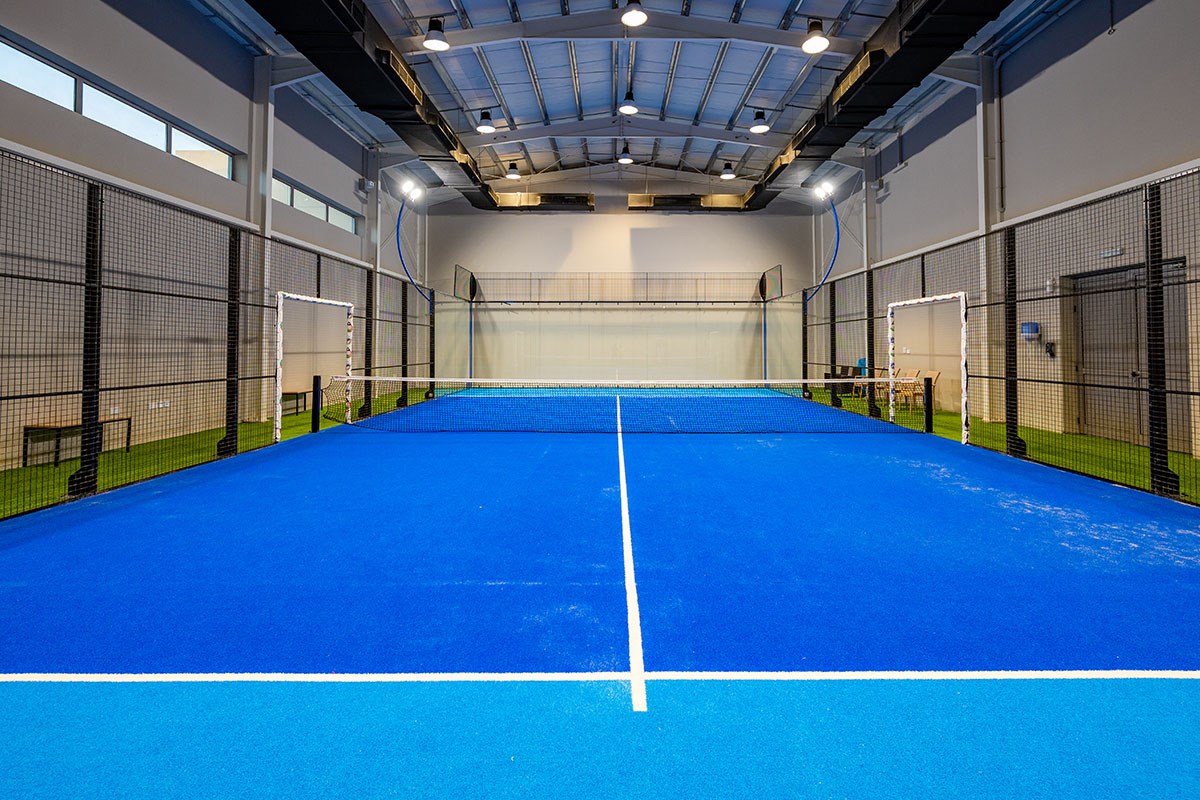Navigating Local Regulations for Padel Court Construction
Navigating Local Regulations for Padel Court Construction
Blog Article

As the popularity of padel continues to surge, many enthusiasts and investors are looking to construct their own courts. However, diving into the world of padel court construction can be daunting, especially when it comes to navigating the local regulations that govern such projects. Understanding these regulations is crucial to ensure that your court complies with legal standards and functions effectively within your community.
At MondoPadel.com, we recognize the excitement surrounding the creation of dedicated padel spaces. Our commitment to providing high-quality padel courts includes not just expert design and manufacturing but also guidance through the installation process while adhering to local laws and requirements. By familiarizing yourself with the regulations in your area, you can pave the way for a successful court construction project that contributes to the growing padel community.
Understanding Local Regulations
When planning the construction of a padel court, understanding local regulations is essential. Each location may have its own set of zoning laws, building codes, and regulations governing sports facility construction. It is crucial to research these aspects to avoid potential legal issues or delays in your project. Local government websites, planning offices, or building departments can provide valuable resources and guidance.
In addition to zoning laws, there may be specific requirements concerning land use, environmental impact, and noise control. This is particularly important if you are planning to build in a residential area or near schools. Ensuring compliance with these regulations not only facilitates a smoother construction process but also helps in fostering positive relationships within the community, which can be crucial for the success of your padel court.
Lastly, consulting with professionals who specialize in padel court construction, such as MondoPadel.com, can significantly ease the process. They can provide insights into typical regulatory challenges and help navigate the complexities involved in acquiring necessary permits and approvals. By leveraging their expertise, you can ensure that your project adheres to all local regulations and is set up for success from the very beginning.
Site Selection and Permits
Selecting the right site for your padel court is crucial for ensuring its success and longevity. Consider factors such as accessibility, visibility, and available space. Ideal locations are easily reachable for players and spectators while providing sufficient room for the court, parking, and potential amenities. Evaluating the surrounding environment helps in enhancing the overall experience, so keep in mind noise levels, local traffic, and community engagement.
Once a suitable location is identified, the next step involves obtaining the necessary permits. Local regulations may require approvals from zoning boards, environmental agencies, or building departments. Engaging with local authorities early in the planning process can streamline this phase. It is essential to understand the specific requirements for construction, which can vary widely based on the region and type of facility intended.
Moreover, consulting with experts in padel court construction, like MondoPadel.com, can provide valuable insights into navigating these regulations effectively. Their experience in design, manufacturing, and installation can guide you in meeting all local requirements. Taking these proactive steps ensures your padel court project moves forward smoothly and meets community standards.
Design and Construction Considerations
When planning the construction of a padel court, several design considerations are crucial for ensuring functionality and compliance with local regulations. The dimensions of the court, which follow international standards, must be carefully adhered to. This includes the proper measurements for the playing area, the height of walls, and the type of surface that provides optimal playability. Collaborating with experts from MondoPadel.com can help achieve the ideal design that meets both aesthetics and performance.
Additionally, site selection plays a significant role in the successful construction of a padel court. Factors such as accessibility, drainage, and proximity to existing structures will influence the overall quality of the installation. A well-chosen site minimizes environmental challenges and increases user satisfaction. Engaging with MondoPadel.com allows for a tailored approach to site development that aligns with local zoning and construction regulations.
Lastly, incorporating sustainable practices into the design and construction process can enhance the project's appeal. Utilizing eco-friendly materials and energy-efficient lighting contributes to a facility that is not only compliant with current regulations but also future-ready. By choosing MondoPadel.com, stakeholders can benefit from innovative solutions that prioritize sustainability without compromising the quality of the padel court.
Discover
Ensuring Compliance and Quality
When embarking on the construction of a padel court, ensuring compliance with local regulations is crucial to avoid potential legal issues and fines. Different regions may have specific requirements pertaining to zoning, building codes, and safety regulations. It is essential to engage with local authorities early in the planning process to gather information on necessary permits and inspections. Understanding these regulations will help streamline the construction process and ensure that the court meets all legal standards.
Quality is equally important in the construction of padel courts. By partnering with a reputable company like MondoPadel.com, you can guarantee that your court is built with high-quality materials and expert craftsmanship. This not only enhances the court's durability but also provides players with a superior experience. Utilizing experienced manufacturers and installers can significantly impact the longevity and performance of the court, making it a valuable investment for any community or sports facility.
Finally, regular maintenance is vital for sustaining both regulatory compliance and the quality of the padel court. Establishing a routine inspection and maintenance schedule will help identify any issues early and ensure the court remains in excellent condition. Proper care will prolong the life of the court and maintain optimal playing conditions, keeping players happy and engaged. Engaging with professional maintenance services can also provide peace of mind, knowing that your investment is being well taken care of.
Report this page